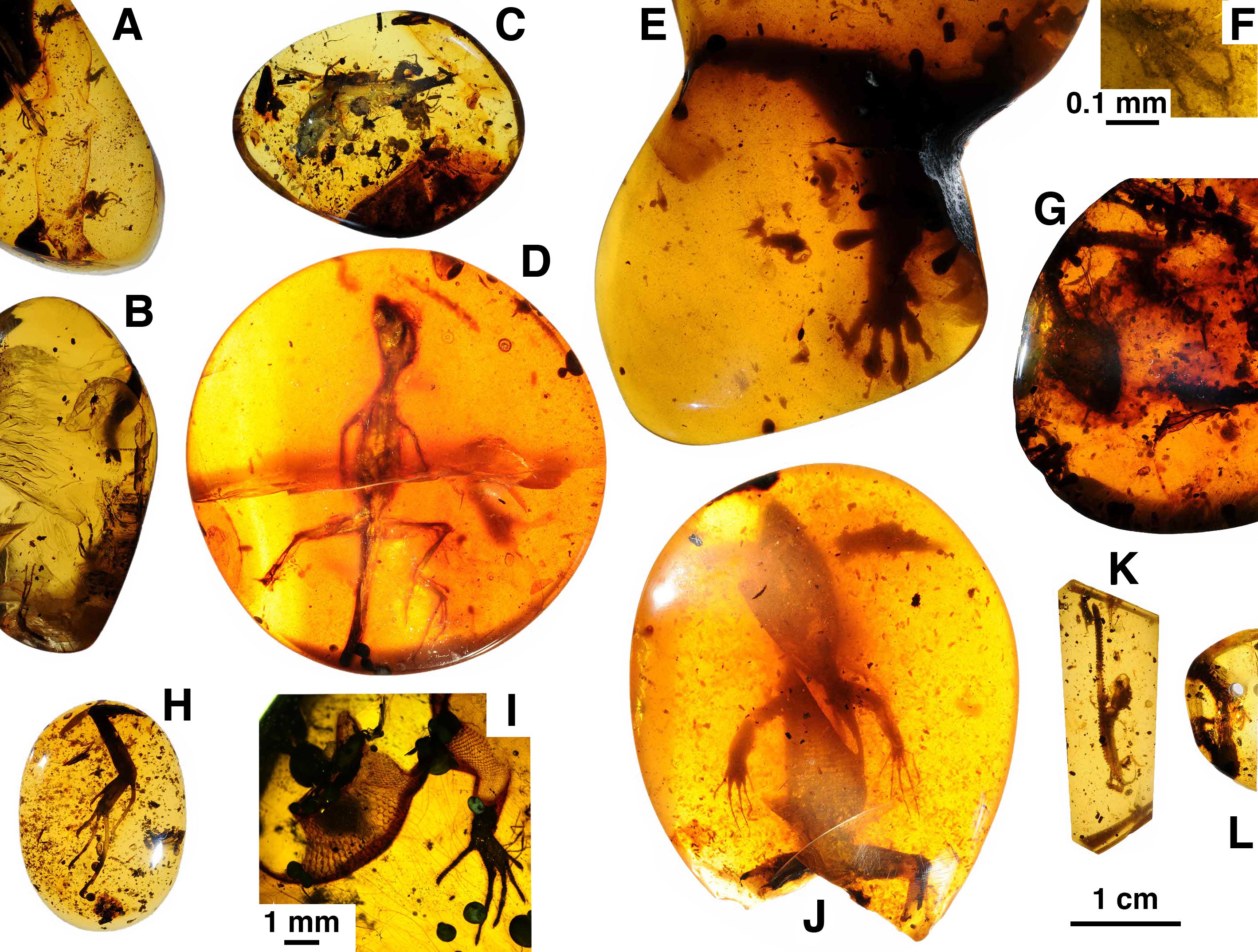Found: Tiny Lizards Preserved in Amber
The lizard fossils are around 99 million years old.

Amber lizards (Photo: Daza et al. Sci. Adv. 2016; 2 : e1501080)
About 99 million years ago, a few tiny lizards were caught in a stream of resin and fossilized in amber. Ten years ago, that trove of amber was found in Myanmar, and samples donated to the American Museum of Natural History. Now, scientists in the U.S. have examined the lizards and, as they report in Science Advances, have determined that these are likely the oldest lizard fossils ever found.
Lizard fossils are hard to come by: tiny reptiles’ delicate bodies rarely last long. The best chance of finding a lizard fossil is discovering one embedded in amber. Those have been found on three different continents, but often the fossils contain just part of a lizard—a foot, perhaps.
This find included 12 lizards, including three that were remarkably well preserved. One of those, scientists determined, is related to modern-day geckos and already had developed adhesive toe pads on its feet. Another, they think, is related to chameleons: it doesn’t have the right body shape or a chameleon’s fused toes, but it does have the characteristic tongue flick that would have snapped out to capture its prey.
These fossils can help scientists fill in the story of lizard evolution. The chameleon fossil, for instance, is 75 million years older than the next oldest chameleon fossil ever found and comes from an entirely different part of the world. As a group, they establish the diversity of lizard tongues and toes that had developed 99 million years ago.
So now we know: lizards have been excellent tongue flickers for eons.
Bonus finds: 2,500-year-old legal seal that belonged to a woman, the rare element curium was present at the solar system’s creation
Every day, we highlight one newly found object, curiosity or wonder. Discover something amazing? Tell us about it! Send your finds to [email protected].















Follow us on Twitter to get the latest on the world's hidden wonders.
Like us on Facebook to get the latest on the world's hidden wonders.
Follow us on Twitter Like us on Facebook